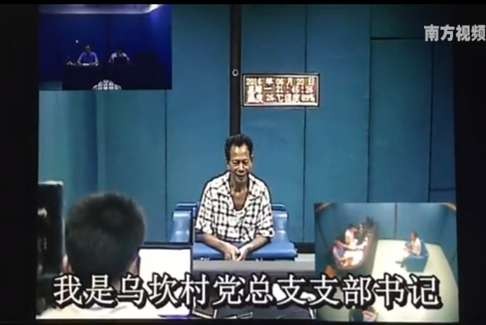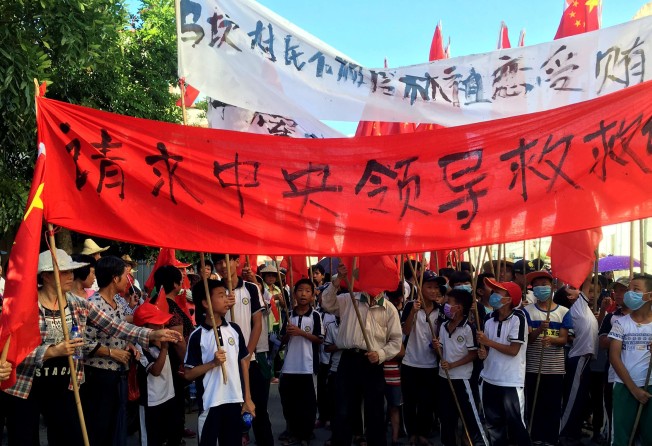
Chinese lawyers say judicial officials barred them from advising Wukan protest chief
Two leading rights attorneys say Guangzhou authorities told them to avoid contact with Lin Zuluan, the detained village chief rallying protesters

Two renowned rights lawyers based in southern China say judicial authorities told them to avoid the case involving the Wukan village chief who has been detained on suspicion of bribery after calling for protests over land grabs.
But they pointed out that under mainland law, Lin Zuluan was entitled to counsel, whether he was guilty or not.
Lin, 70, was taken from his home in the fishing village in Guangdong province early on Saturday morning after calling on residents to mount a protest over alleged land grabs. Prosecutors accused him of “pocketing a large sum of money” through contracting village infrastructure projects, and officials later aired a video showing his confession. But local villagers say he’s not guilty and continue to press for his release.
On Monday Lin’s family hired Ge Yongxi to act as counsel. They signed documents with the law firm and deposited a retainer fee. But Ge said his firm was contacted by the municipal judicial authorities and ordered to return the funds on Wednesday.
“The firm was banned from accepting any client from Wukan village, which obviously interferes with our normal, legal business,” Ge told the South China Morning Post. “He should not be denied the right of legal counsel, whether he has taken any bribe or not.”

Villagers remain adamant the video confession was forced, saying he appeared to be reading from a prepared statement. They marched within the village on Wednesday, the fourth straight day since their public action began on Sunday, calling for his release and his name restored.
It is clearly illegal to deny the accused party access to legal counsel
Another Guangzhou-based lawyer, Ge Wenxiu, said the judicial authority as well as security personnel approached him twice on Tuesday and told him to stay away from the case. “I have not been approached by Lin’s family ... but I am putting it on record that if Lin or any Wukan villagers come to me for legal defence, I will take it into serious consideration,” he said. “I don’t understand the authorities’ logic as it is clearly illegal to deny the accused party access to legal counsel.”
Wukan made global headlines in 2011 when residents staged landmark protests over corruption and land seizures. They were allowed to directly elect their leaders following the stand-off, but allegations that officials were misusing land persisted, and have led to the recent protests.
Villagers said they feared a crackdown, and concerns are rising over whether the government will handle the crisis with a hardline approach.
Officials in Shanwei, a higher administrative authority, this week accused Hong Kong media of planning and directing the protests and threatened “to take measures”.
Ge Yongxi said: “I do not wish to speculate on the authority’s motive, but a corruption case involving a village chief is very minor and the amount involved is nowhere near [the level of] corrupted county chiefs, mayors, governors or even Zhou Yongkang’s family,” he said, referring to the disgraced former security tsar who was jailed for life for corruption and abuse of power last year.
Renmin University political scientist Zhang Ming said he was pessimistic over the villagers’ hopes for justice.
“It’s hard to tell, but I do not have a good feeling about ... maintaining social stability with [such] high pressure,” Zhang said.